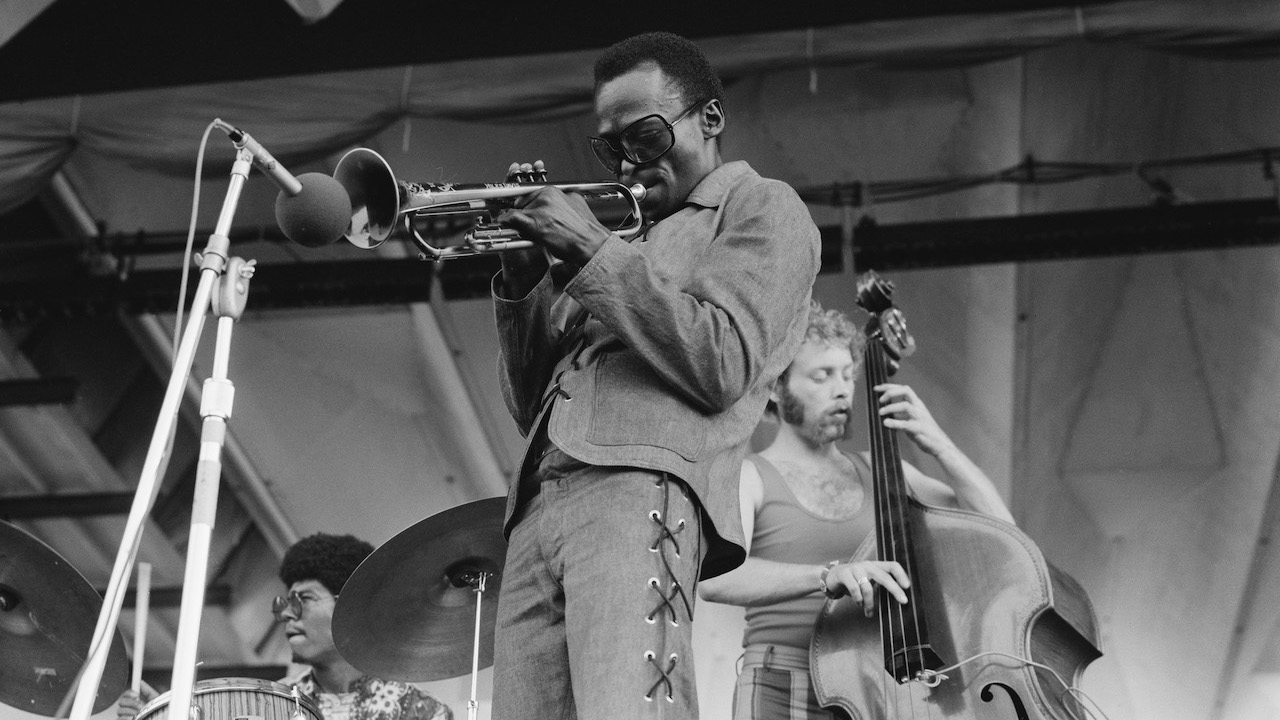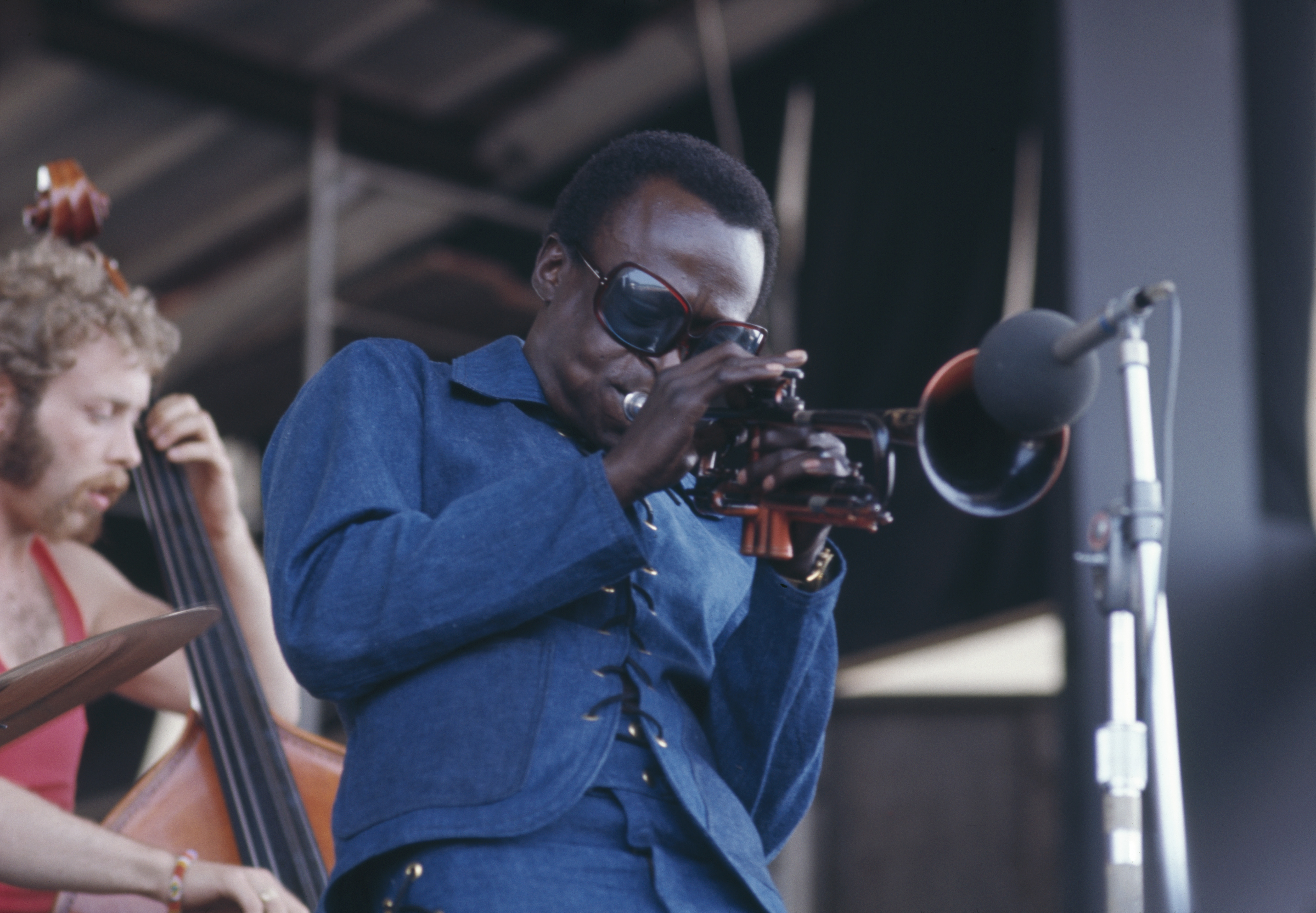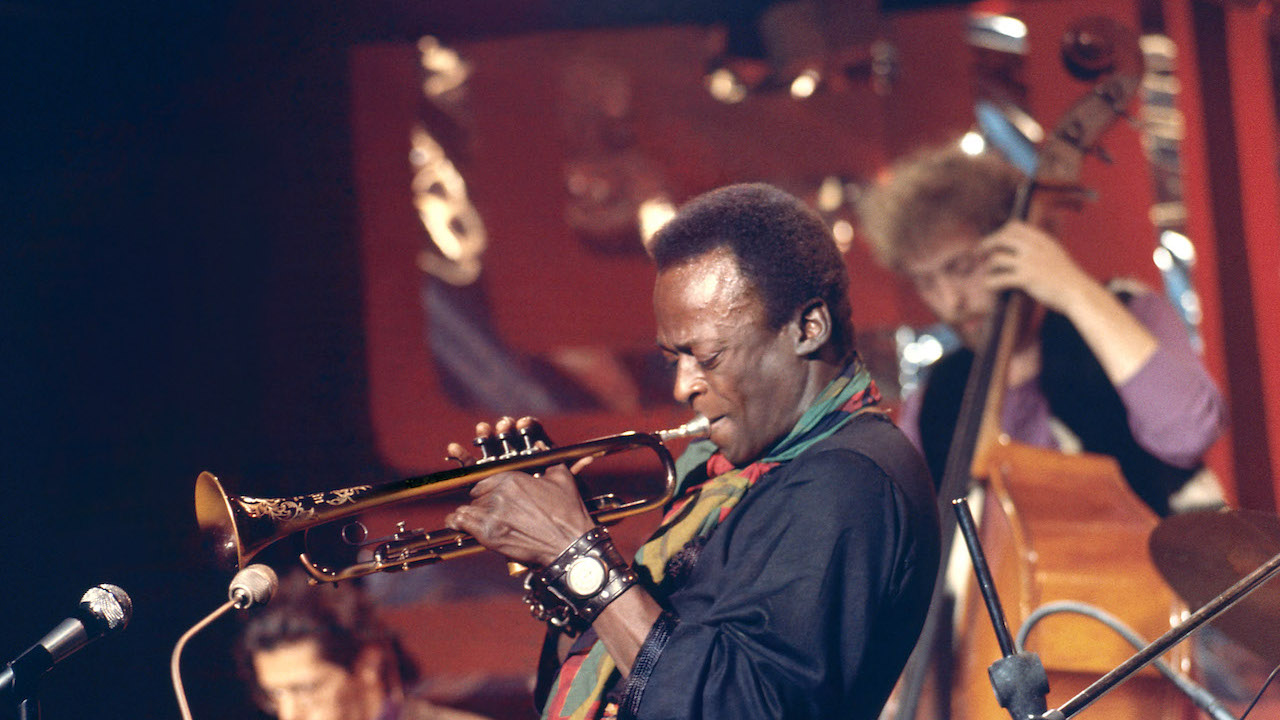“If I had tried to be another Ron Carter I would have failed. I don’t think that’s what Miles was looking for”: Dave Holland on the making of Miles Davis’ Bitches Brew
Few jazz bassists can match the pedigree of Dave Holland, thanks to his work with Miles Davis, Stan Getz, Chick Corea and just about everyone else

All the latest guitar news, interviews, lessons, reviews, deals and more, direct to your inbox!
You are now subscribed
Your newsletter sign-up was successful
Dave Holland has played bass guitar and acoustic bass with some of the greatest names in jazz. Born in 1946 and a star by his mid-twenties, he has performed with such an array of influential musicians – and in so many different bands – that it’s hard to describe his contribution in a few words. Look at the map of jazz history and he’s all over it.
After moving to London in 1964 and scoring a regular slot at Ronnie Scott’s as a sideman for the visiting jazzers, Holland debuted as a recording artist; a notable early session was for the Spontaneous Music Ensemble’s 1968 LP, Karyobin.
One life-changing evening that same year, Holland was playing at Ronnie Scott’s in support of pianist Bill Evans when Miles Davis dropped in.
“I was playing with Elaine Delmar and John Marshall,” Holland told Bass Player. “I didn’t think Miles would be listening to us, but drummer Philly Joe Jones came to me and said, ‘Dave: Miles wants you to join his band!’” As you’d expect, Holland was stunned.
“I was absolutely speechless. I thought he was joking, but then I realised he wasn’t. Philly Joe said, ‘You need to speak to him after the set,’ but when I went to look for Miles after the gig he’d gone to his hotel. I got a message to call him the next day, but when I did he’d left and gone back to New York, so for a couple of weeks I had no information and I didn’t know what was going on.
“Of course, half of London was calling me and asking what was happening! A couple of weeks later I got a call from his agent, asking me if I could be in New York in two days to start working with Miles…”
Once settled in NYC, Holland was given three weeks with Herbie Hancock, Davis’s piano player, to learn the set which the band were playing at the time. He didn’t actually meet Miles until the band were onstage together.
All the latest guitar news, interviews, lessons, reviews, deals and more, direct to your inbox!

“I got to the club and I was a little bit shy, and was waiting to see what was happening – and the next thing I knew, everyone got on the bandstand and I got up there with them. Nobody told me what we were going to play or anything – Miles just started. That was what he always did: he just started each set with a trumpet phrase, or some way of cueing it in. And that was it!”
Didn’t the late famously irascible trumpeter even tell the band what key he wanted to play the song in? “No, no, I was expected to know. He didn’t say anything. He just started playing! But that was the tradition at that time – you were supposed to do your homework. You were supposed to know the songs – certainly the ones that had been recorded.
“If you got a gig with somebody like Miles, you were expected to do the background work so that when you got onstage you were ready, you know? I did as much work as I could and tried to be as ready as I could.”
The previous incumbent on bass in Davis’s band had been the legendary Ron Carter – big boots to fill by anybody’s standards. Still, Holland – despite being barely more than a talented kid – knew better than to copy Carter’s style.
“I was 21 years old, so I was still discovering what my own thing was. I had various influences that I built on as a young player, and Ron was one of them – and I was starting to have some of my own ideas about music and what I wanted to do, but I think I’d already realised at that age that you can’t replicate anybody else’s playing. You have to really play your own way, although, of course, you learn from other people, and Ron had set a certain standard in the group.
“If I had gone in and tried to be another Ron Carter – which I couldn’t have been anyway – I would have failed. I don’t think that’s what Miles was looking for.”

If you’ve read Davis’ book, Miles: The Autobiography, you’ll know that he didn’t gladly suffer anyone who didn’t match up to his high standards. Was Holland ever intimidated by the great man? “I wouldn’t say I was intimidated – that’s a word that shows fear – but I was certainly in awe of him, and I had deep respect for him to the point where I found it very difficult at the beginning to talk to him.
“He defused that very well: he invited me to his house many times in those first months that I was with the band. We’d cook food and talk about music, or whatever was interesting to him, and maybe play something. He really made efforts to settle me down and get me to feel welcome.”
Cooking with Miles (pun intended) did the trick, and the youthful bass player soon found his place in the band. “Miles always wanted people to come to their own conclusion about the music and make their own contribution. I knew the history of that rhythm section and how it functioned – at least from the records. After that, I said, ‘Well, now I’ve got to find my own way.”’
The new band soon hit the ground running, with Chick Corea replacing Hancock and striking up a friendship with Holland. The first recording sessions were for the Filles De Kilimanjaro LP, on which Holland played acoustic bass on two songs. Regarded nowadays as a bridge between Davis’s more traditional acoustic music and the electric fusion which followed, Filles was an early triumph for Holland – but would he have played the bass parts differently nowadays?
“Well of course! That’s always the case with anybody involved in creative work. You change, and your judgements change, just like they do in your life. Certainly, at this stage, I’ve learnt a lot of things since I was 21 – but when I look back at what I did, I feel that it’s representative and that’s what counts.
“There’s always more to do; I try not to second-guess myself. I do a project and I move on. I don’t do a lot of looking back and examining it. I look at the work as a work in progress, always. You move onto the next step, and whatever it was, that was what it was. You let it be and say, ‘OK, I did the best I could in that situation – let me see what I can do next; what can I learn from that? Where can I go from there?’ That, to me, is what the development of a musician is about.”
For fans of Miles Davis’s electric music, his peak came with two key albums – 1969’s In A Silent Way, and Bitches Brew from the following year. Holland played on both of these classic LPs, which helped to advance the cause of jazz-rock fusion into the 70s, its most popular decade. By this point Holland had switched from acoustic bass to bass guitar, adding a wah pedal for added tonal versatility.
“The music was Miles’ idea, of course, and we’d utilised a very fine electric bass player, Harvey Brooks, on some of the Bitches Brew sessions, along with my acoustic bass. Some of the music really started to sound to me like it needed an electric bass in order to provide the tonal setting for the music, and so around that period I said, ‘Look, I think it would be great if I played bass guitar on some of these songs,’ and that’s what I did.”
Pivotal as Holland’s decision to switch to electric was for jazz fusion, and legendary as those albums remain to this day, it marked the beginning of the end of his time in the band. “For the next year or so I was slowly working more on bass guitar, and less on acoustic. It was one of the reasons why I decided to leave the group and to focus back again more on the acoustic bass.”
So how do you hand in your notice to a man like Miles Davis?
“We were doing a gig at Madison Square Garden, and Chick Corea had decided to leave the group at the same time as me, so we could start a new group, which we called Circle. We both said to Miles, ‘We’re going to be leaving the group.’ He said, ‘Why do you wanna do that? We’re just starting to make some money!’
“He said it partly tongue-in-cheek – he knew that we’d made our decision – but he didn’t say much else. I could see where he was coming from, though: we’d put a lot of groundwork in, developing the music, and we were just starting to play these huge venues like the Isle of Wight. I don’t know if he wished us luck, or whatever, but he didn’t give us a bad feeling about it.
Miles knew – just as any developed musician knows – that when it’s time to move on, you move on. You don’t try and persuade a musician to stay in a group if he or she has decided to move on to something else.”
After close to three years with Davis’ group – whose fluctuating line-up had also included Keith Jarrett and Steve Grossman at times – Holland had received the best of all possible educations in jazz and in band life, and was poised to begin a successful solo career. Circle, the group he founded with Corea, released some well-received LPs for the ECM label, and he also recorded the first of a long list of solo albums – notable among which was 1972’s Conference Of The Birds.
Not long after Circle ceased recording, Holland was asked to work with Stan Getz. Asked how he remembers the Getz sessions, Holland said: “It came at an interesting point in my life, because I’d been with Miles and then right after that worked with Circle, so I’d been doing some music that was quite different to Stan’s approach. It was a chance for me to go back and play some standards.
“I really enjoyed the language of that music and learning from him, because he was a master – he could play a melody in such a beautiful way. It was a really nice experience for me.”
After so many high-profile collaborations and an equal number of successful solo ventures, we wondered if Holland is equally happy as a sideman and a bandleader. “If I’m in a good project I don’t think about whether I’m a sideman: to me, once you’re on the bandstand, everything is equal and we’re all part of the music. It’s not a question of bandleader or sideman, it’s about whether the project is creative and whether I enjoy playing with the musicians.”
Is Holland an easy guy to work with when he’s in charge, or is it his way or the highway? “When I put music together I try and leave as much as possible to the musicians to decide on, so they can make their own creative decisions about how they work with the music – although I give some guidance about what the piece is about. I like it when people do that for me as well.
“Having said that, certain compositions that people will write will require some explanation about what their concept for it was – and there might be something specific that they feel they need to provide that would make the composition the way they want it. I am certainly happy to try and find out how to realise that.”
And on the flip side, is he happy to take direction about his bass parts? “That’s not an issue for me. If people have a suggestion, I’m happy to hear it. I think how it’s done is important: if it’s done with respect and sensitivity, then I think musicians are happy to discuss things like that. You don’t want a dictator who says, ‘No, not that way – do it this way!’
“My theory is always that if you have to explain too much, you’ve got the wrong musician on the gig. The more explaining you do, the more you have to consider whether the right person is there in the first place – so if I don’t have to say anything, I’m happy. If I can just present the composition and get through the basic ideas and turn the band loose on it, that’s the perfect thing for me.”
Joel McIver was the Editor of Bass Player magazine from 2018 to 2022, having spent six years before that editing Bass Guitar magazine. A journalist with 25 years' experience in the music field, he's also the author of 35 books, a couple of bestsellers among them. He regularly appears on podcasts, radio and TV.







